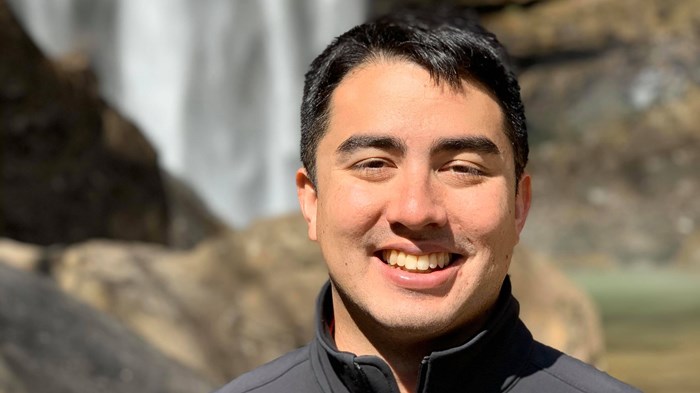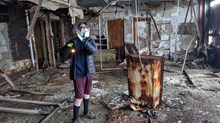Climate Care as Neighbor Care?

How did you first get involved as an advocate for environmental concerns?
I first got involved through my time as an undergrad at Wheaton College. As a pastor’s kid, I grew up in church, first in Singapore, where I’m originally from, and then later in the United States. Yet, it was not until I was 19 years old that I heard a sermon (by Wheaton theology professor Dr. Vince Bacote) about our calling to care for God’s creation.
How must we approach environmental issues as a way of better loving our neighbors?
We are inextricably part of and interdependent on the rest of creation. Thus, environmental issues are also people problems, both in that they impact people and in that we are often part of the cause and/or solution.
First, many of us and our churches can often be functionally anthropocentric. In other words, we largely place perceived human interests, desires, and purposes at the center of our worlds. This is idolatry. And it leads to a toxic and abusive relationship with the rest of creation, where we basically do whatever we want with it and see the environment as existing primarily for human use. In contrast, God should be at the center of our individual and communal lives (an approach termed theocentrism, in contrast with anthropocentrism or eco/biocentrism). With God at the center, we grow to relate very differently with the rest of creation, recognizing that it also exists by and for God and thus has its own value and interests apart from us. In other words, it is God’s creation, not ours, and we should treat it as such.
Second, environmental problems are interconnected with many of the other pressing challenges we face around the world, including racial injustice, forced displacement/migration, economic poverty, climate change (which is far more than just an environmental issue), public health, and more. To make lasting progress here, we need to engage these challenges together instead of treating them as unrelated or divisible. The U.S. environmental justice movement, which arose in 1982 from African American Christians protesting a landfill site in Warren County, NC, offers rich inspiration and leadership in connecting these dots to better protect both human and natural communities.
What do you believe is at the heart of the tension between evangelicals in America and the politics surrounding climate change? How are you working to reconcile this through groups like YECA and A Rocha?
To a large extent, the tension between American evangelicals and climate change is that our politics have come to define our faith, instead of our faith driving our politics. As a result, if we want to predict someone’s attitudes toward climate change, we can make a pretty good guess based on their political ideology or party identification. Groups I am involved with, such as A Rocha and Young Evangelicals for Climate Action, are working to transcend the unhealthy political polarization here by properly reframing these issues first and foremost as moral, spiritual, and theological concerns. These are issues that all Christians are called to care about regardless of our political leanings—it’s an integral part of biblical discipleship and witness in the world today.
What are some practical first steps that Christians can take to become more involved in creation care?
When we pray, we should pray for creation and those being harmed by climate and environmental problems. When we tithe, we can include contributions to groups like A Rocha and Young Evangelicals for Climate Action, which are leading and representing the church in engaging these issues.
We can also think of ways to reduce our negative impacts on the environment, such as by reducing our meat, energy, and water consumption. Similarly, we can think of ways to increase our positive impacts on the environment, such as by planting pollinator gardens around our homes, participating in service projects to restore habitat or remove invasive species, and so much more. It is important to recognize that creation care cuts across all levels, and so faithful engagement encompasses everything from good practices at the individual/household scale to collective action and advocacy at the structural/systemic scale.
What are some lessons that can be learned about the future of environmental concerns and how they should be addressed from the global experience of the COVID-19 pandemic?
There are many parallels between the COVID-19 pandemic and environmental concerns such as climate change. Both pose threats that can be hard to visualize and require engaging across multiple scales (individual, collective, national, global). Both also require proactively taking precautions—sooner and more aggressively than might seem necessary—in order to flatten the curve on the resulting consequences and give us more capacity to adapt.
We also saw how hard it can be to sustain our commitment to address persisting issues like climate change over the long haul. COVID-19 morphed from a scientific and public health crisis into a polarized partisan and culture war battle even faster than climate change did in the 1990s-2000s. Many of our communities took the pandemic seriously for a few weeks but then quickly started to lose stamina, even as the situation grew worse.
On the positive side, we witnessed much of the world mobilize into action across sectors and scales, and at speeds and magnitudes, that have been truly remarkable. We now have a better sense of what can be possible when we are sufficiently motivated!
Rev. Ben Lowe is the author of multiple books and has over a decade of experience engaging faith communities around social and environmental concerns. He is currently completing a doctorate in global environmental change at the University of Florida and serves as the chairperson of A Rocha USA and the co-chair of Christians for Social Action.
For more information, visit Love Your Place, a program by A Rocha USA that provides valuable tools, resources, and connections to help empower people to care for creation.
The Better Samaritan is a part of CT's
Blog Forum. Support the work of CT.
Subscribe and get one year free.
The views of the blogger do not necessarily reflect those of Christianity Today.






















